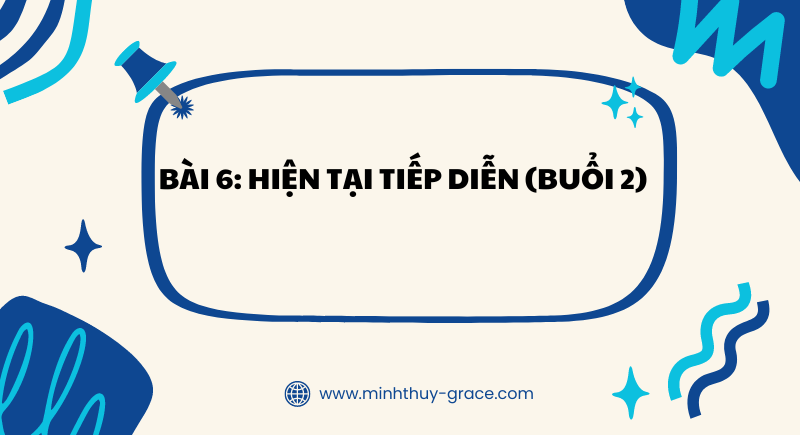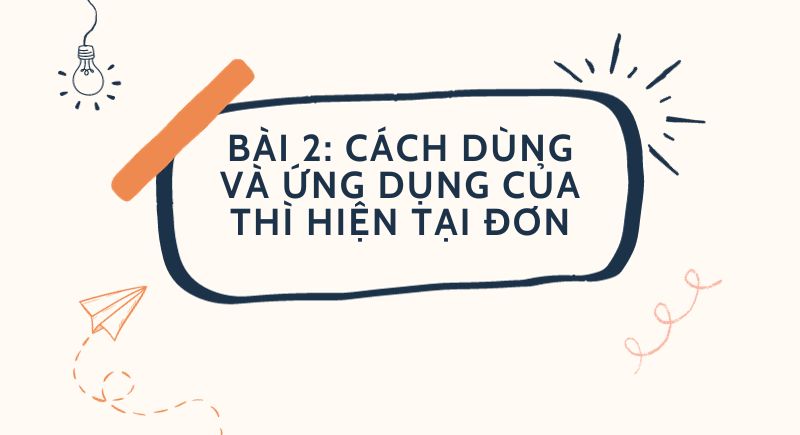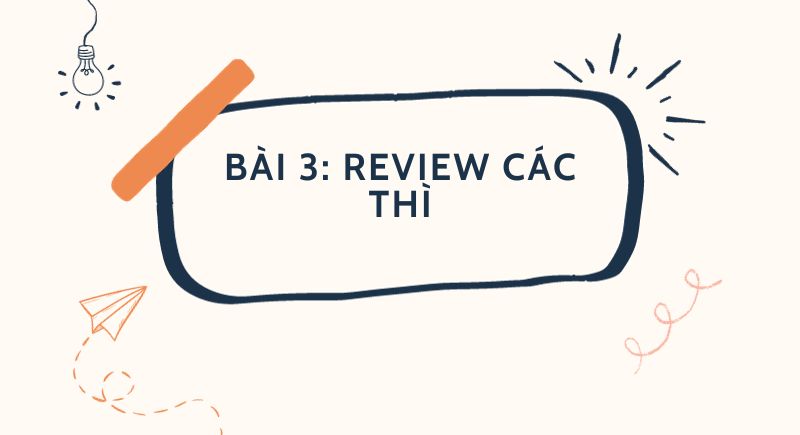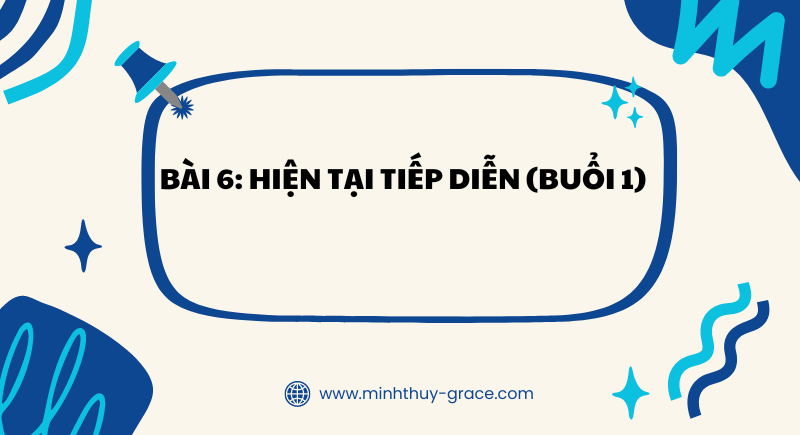I. Can, Could và (Be) able to
1. Cấu trúc: Can/ Could / Be able to + V-inf
2. Thể phủ định:
Cannot = Can’t
Could not = couldn’t
3. Cách dùng:
- Dùng để diễn đạt một điều gì đó khả thi hoặc được cho phép hoặc ai đó có khả năng làm một điều gì đó.
Ví dụ:
– We can see the lake from our hotel.
– “I don’t have a pen”. “You can use mine”.
– Can you speak any foreign languages?
– I’m fraid I can’t come to the party on Friday.
- Bạn cũng có thể dùng “Be able to” nhưng “Can” thường phổ biến hơn.
Ví dụ: We are able to see the lake from our hotel.
- Vì “Can” chỉ có 2 dạng: Can (hiện tại) và Could (quá khứ). Vì vậy thỉnh thoảng cần phải sử dụng “Be able to”:
Ví dụ:
– I can’t sleep. I slept – I didn’t sleep
-> I haven’t been able to sleep recently.
– Tom can come tomorrow.
-> Tom might be able to come tomorrow. (may – might)
– Applicants for the job must be able to speak two foreign languages.
– Could/ can you do me a favor?
– Can you help me? Could you help me please?
Could
- Chúng ta sử dụng “Could” để diễn đạt một ai đó từng có khả năng làm gì đó hoặc từng được cho phép làm gì đó.
Ví dụ:
– My grandfather could speak five languages.
– We were totally free. We could do whatever we wanted
(= We were able to do)
- Chúng ta cũng có thể sử dụng “Could” đặc biệt với các động từ: See, hear, smell, taste, feel, remember, and understand
Ví dụ:
– We had a lovely room in the hotel. We could see the lake.
– As soon as I walked into the room, I could smell gas.
– I was sitting at the back of the theatre and couldn’t hear very well.
- Chúng ta sử dụng “Could” cho khả năng chung chung và với các động từ như see, hear, v.v…
Ví dụ:
– My grandfather could speak five languages.
– I could see them, but not very clearly.
- Nhưng để diễn đạt ai đó từng thành công trong việc làm một điều gì đó trong một tình huống đặc biệt, chúng ta thường dùng Was/Were able to hoặc Managed to (không phải could)
Ví dụ:
– The fire spread quickly, but everybody was able to escape. (not could escape)
– I didn’t know where Max was, but I managed to find him in the end. (not could find)
– Manage (v)
– Manager (n)
II. Could (do) và Could have (done)
1. Cấu trúc:
a) Could + V-inf
b) Could have + PP
2. Cách dùng:
Như đã đề cập ở phần trước, Could là thể quá khứ của Can. Tuy nhiên, Could không luôn ở quá khứ. Chúng ta có thể sử dụng Could để diễn đạt cho những hành động khả thi ở hiện tại hoặc tương lai, đặc biệt là để đưa ra lời đề nghị.
3. Ví dụ:
- A: What shall we do tonight?
B: We could go to the cinema
- A: When you go to Paris next month,
you could stay with Sarah.
B: Yes, I suppose I could.
4. Can cũng có thể dùng được trong những câu này. Could thì ít chắc chắn hơn Can.
5. Chúng ta có thể dùng Could (NOT Can) cho những hành động phi thực tế.
Ví dụ:
I’m so tired, I could sleep for a week. (not I can sleep for a week)
So sánh giữa Can và Could:
- I can stay with Sarah when I go to Paris. (thực tế)
Maybe I could stay with Sarah when I go to Paris. (có thể, nhưng ít chắc chắn) - This is a wonderful place. I could stay here forever. (phi thực tế)
6. Chúng ta dùng Could have (done) để nói về quá khứ.
Ví dụ:
- I’m so tired, I could sleep for a week. (hiện tại)
I was so tired, I could have slept for a week. (quá khứ)
- The situation is bad, but it could be worse. (hiện tại)
The situation was bad, but it could have been worse. (quá khứ)Và để diễn đạt một điều gì đó “đã có thể xảy ra” hoặc “có khả năng” nhưng đã không xảy ra.
7. Và để diễn đạt một điều gì đó “đã có thể xảy ra” hoặc “có khả năng” nhưng đã không xảy ra.
Ví dụ:
- Why did you stay at a hotel? You could have stayed with me. (Lời nói thể hiện sự tiếc nuối, trách nhẹ, nói lẫy về việc người kia đã có thể tới ở với mình mà sao không tới mà lại đi ở khách sạn).
- Why do you want to stay at a hotel? you can stay with me. (Lời đề nghị ở hiện tại trước khi người kia thực hiện hành động ở hotel).
- David was lucky. He could have hurt himself when he fell, but he’s all right.
- I Hurt myself with a knife when cooking
- You hurt me when you told me that you didn’t love me anymore
– Lưu ý rằng “I couldn’t do something” có 2 nghĩa:
- I couldn’t = điều đó sẽ không khả thi ở thời điểm hiện tại
- Could trong “could you do me a favor/ could you help me?” diễn tả sự tha thiết, lịch sự khi nhờ vả một ai.
Ví dụ:
- I couldn’t run ten kilometers now. I’m not fit enough (= I would not be able)
- I couldn’t = I was not able (quá khứ) tôi không có khả năng.
- I couldn’t run yesterday because I’d hurt my leg. (= I was not able)
III. Must và Can’t
1. Cấu trúc:
| Must/Can’t + | V-inf Be + V-ing |
2. Cách dùng:
Chúng ta dùng Must để nói về những điều mà chúng ta tin rằng nó chắc chắn.
Ví dụ:
- You’ve been travelling all day. You must be tired.
‘Joe is a hard worker.’ ‘Joe? You must be joking. He doesn’t do anything.’
- Louise must get very bored in her job. She does the same thing every day.
3. Chúng ta dùng Can’t để nói về những điều mà chúng ta tin rằng điều đó bất khả thi.
Ví dụ:
- You’ve just had lunch. You can’t be hungry already.
- They haven’t lived here for very long. They can’t know many people
4. Chúng ta sử dụng Must have và Can’t have để nói về một điều gì đó chắc chắn trong quá khứ.
Cấu trúc:
| Must have/ Can’t have + | PP Been + V-ing |
Ví dụ:
- I lost one of my gloves. I must have dropped it somewhere.
(that’s the only explanation I can think of) - ‘We used to live very near the motorway.’ ‘Did you? It must have been noisy.’
- Sarah hasn’t contacted me. She can’t have got my message.
Max walked into a wall. He can’t have been looking where he was going
5. Chúng ta có thể sử dụng Couldn’t have thay vì Can’t have
Ví dụ:
- Sarah couldn’t have got my message.
- Max couldn’t have been looking where he was going.
IV. BTVN:
Sách Murphy, trang 53, 55, 57
Người viết: Cô Minh Thúy (0905981001)
Nếu muốn đăng ký các khóa học online/ offline, vui lòng liên hệ trực tiếp Cô Minh Thúy
Nếu bài viết này hữu ích với bạn, hãy share và trích nguồn để tôn trọng quyền tác giả nhé!








